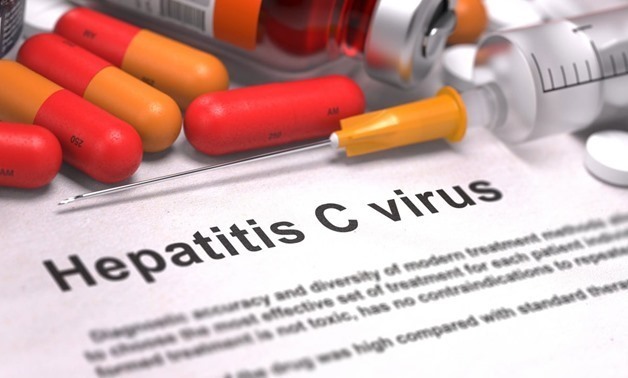
FILE - Two million citizens infected with HCV virus have already been treated, Ministry of Health announce in December 2017
CAIRO – 27 August 2018: Ministry of Health will provide mobile clinics in the places where hepatitis C field inspections are not found as part of Egypt’s efforts to inspect for and eradicate virus C, said spokesperson of the Health Ministry Khaled Mujahid.
In a telephone interview with Al-Hayat TV network, Mujahid said that the mobile clinics initiative to test for hepatitis Cis the most important initiative that President Abdel Fatah al-Sisi called for to eradicate hepatitis C in Egypt.
In 2014, the World Health Organization (WHO) referred that at least one in 10 Egyptians aged between 15 and 59 are infected, adding that the virus kills an estimated 40,000 Egyptians a year due to lack of awareness.
Hence, the government has been making strides to combat hepatitis C by launching the national anti-HCV program across Egypt to eliminate the hepatitis C virus (HCV) under the directive of President Sisi. The efforts of the campaign were recognized by the WHO in 2016 during a visit by WHO Director General Margret Chan.
Since the launch of the program,1.4 million citizens infected with hepatitis C virus (HCV) have been treated, and the government is still looking to fully cure 1.5 million more during 2018.
In February 2018, the Ministry of Health announced the launch of hepatitis C field inspections in 10 governorates, as part of the ministry’s nation-wide initiative to eliminate the spread of hepatitis C by 2022.
The ministry announced that 17 governorates, including Qalioubia, Kafr el-Sheikh, Alexandria, Matrouh, Ismailia, Suez, South and North Sinai and Al-Wadi Al-Gedied have been targeted by the ministry’s walk-in HIV testing.
The medical examinations are conducted through the analysis of ELISA screening for virus C using dried blood samples.
Egypt was helped by the appearance of new drugs that came on market in December 2013. Until then, Egypt depended only on injections of interferon with low success rate and debilitating side effects.
In 2014, Egypt sealed a deal with U.S.-based Gilead for the government to buy the new drug, Solvadi, for $300 for a one-month box.
Treatment expenses have been reduced by 85.5 percent, from LE 10,545 ($581) to LE 1,527 per unit, as a result of using locally manufactured medicine. By the end of March 2017, 1,055,266 patients received treatment at state expense, with a total cost of LE 3,167 billion.
Additionally, Zepatier, a breakthrough treatment for hepatitis C, was approved in February 2018 by the Ministry of Health to treat virus C.
The medicine is not included in the system of treatment at the expense of the state and health insurance due to its high price, as the value of the treatment course costs up to LE 50,000.
It is totally different from other medicinesin the market as it cures early cases without severe liver fibrosis. It also cures patients who did not respond to previous treatments and suffer from other diseases such as diabetes, high / low blood pressure, and heart diseases, as well as patients with renal diseases and renal failure.
The medicine is given alone, without the addition of any other drugs and the duration of treatment is only three months; therefore considered the most appropriate drug for virus C patients with kidney failure as it is completely safe for kidneys.There is no Egyptian alternative to it so far.


Comments
Leave a Comment